Russian police have some talented artists. Check out these masterpieces!
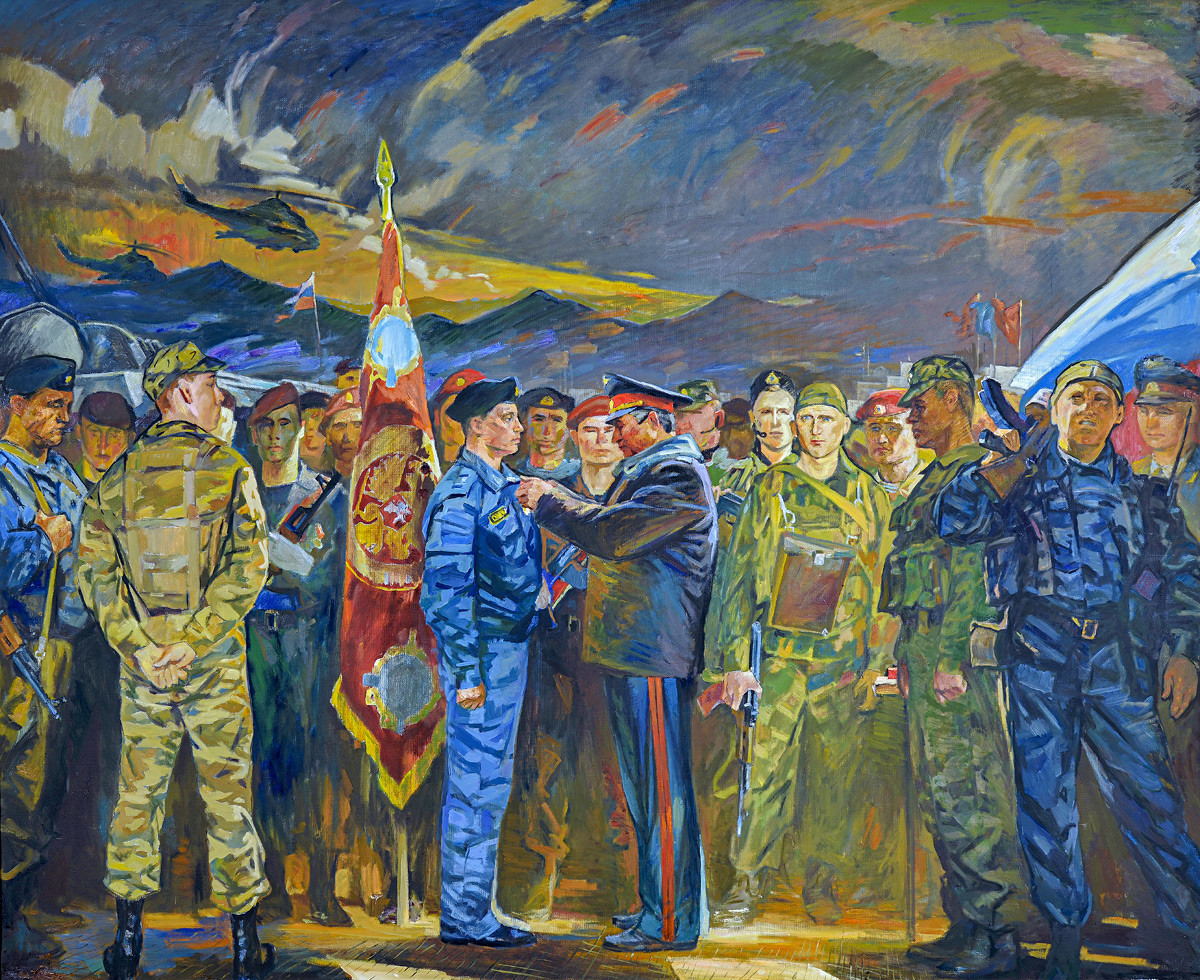
Ilyas Araslanov, "Award in Khankala," 2007
Courtesy of the Studio artists of the Ministry of Internal Affairs of Russia named V.V. VereshchaginIn 1969, the Ministry of Internal Affairs of Russia opened an unusual department in the police structure – the Studio of Artists. This group was tasked with making paintings that captured police work and which aimed to educate ministry personnel. Today, some of these Soviet-era artists are still working; for example, Ilyas Araslanov.
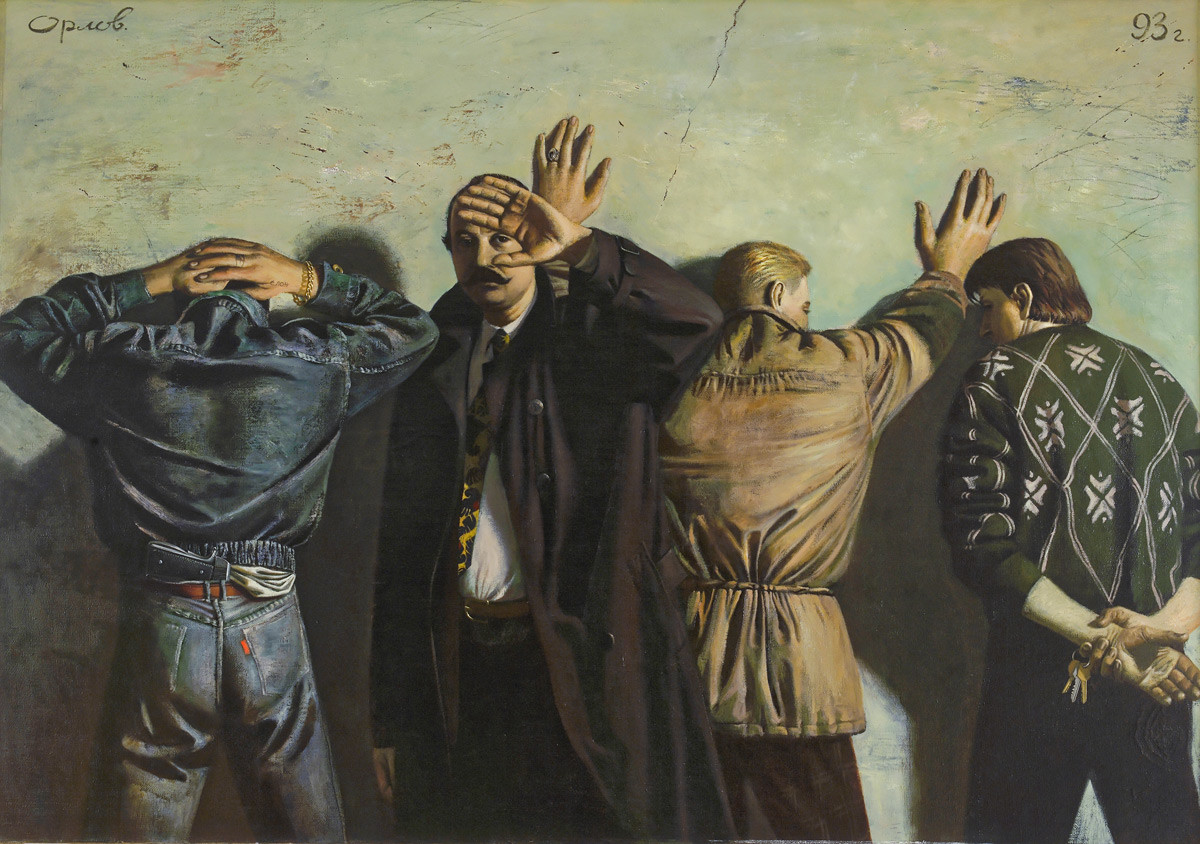
Yury Orlov, "Impasse," 1993
Courtesy of the Studio artists of the Ministry of Internal Affairs of Russia named V.V. VereshchaginBesides depicting work-related events – the detention of dangerous criminals, swearing of oaths and retirement ceremonies – these artists have always painted portraits of important personalities, such as decorated generals and young heroes
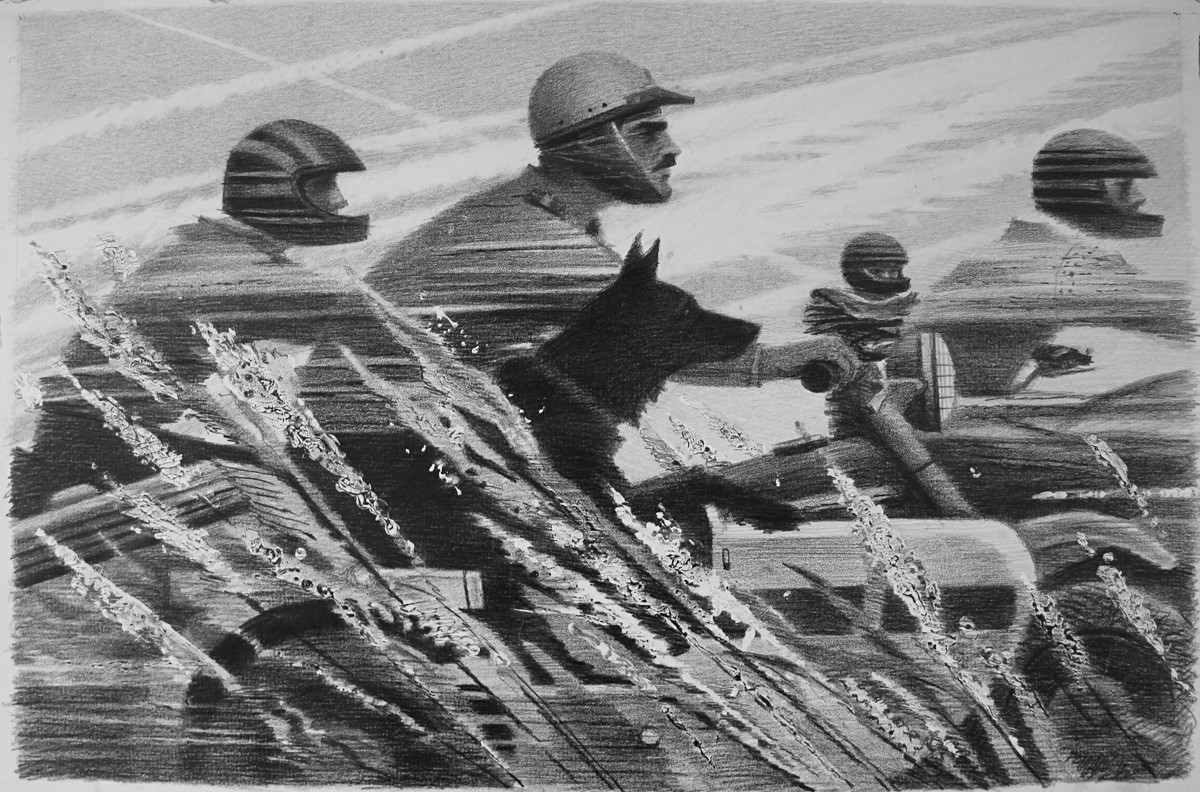
Vyacheslav Zhelvakov, "Competition," 1990
Courtesy of the Studio artists of the Ministry of Internal Affairs of Russia named V.V. Vereshchagin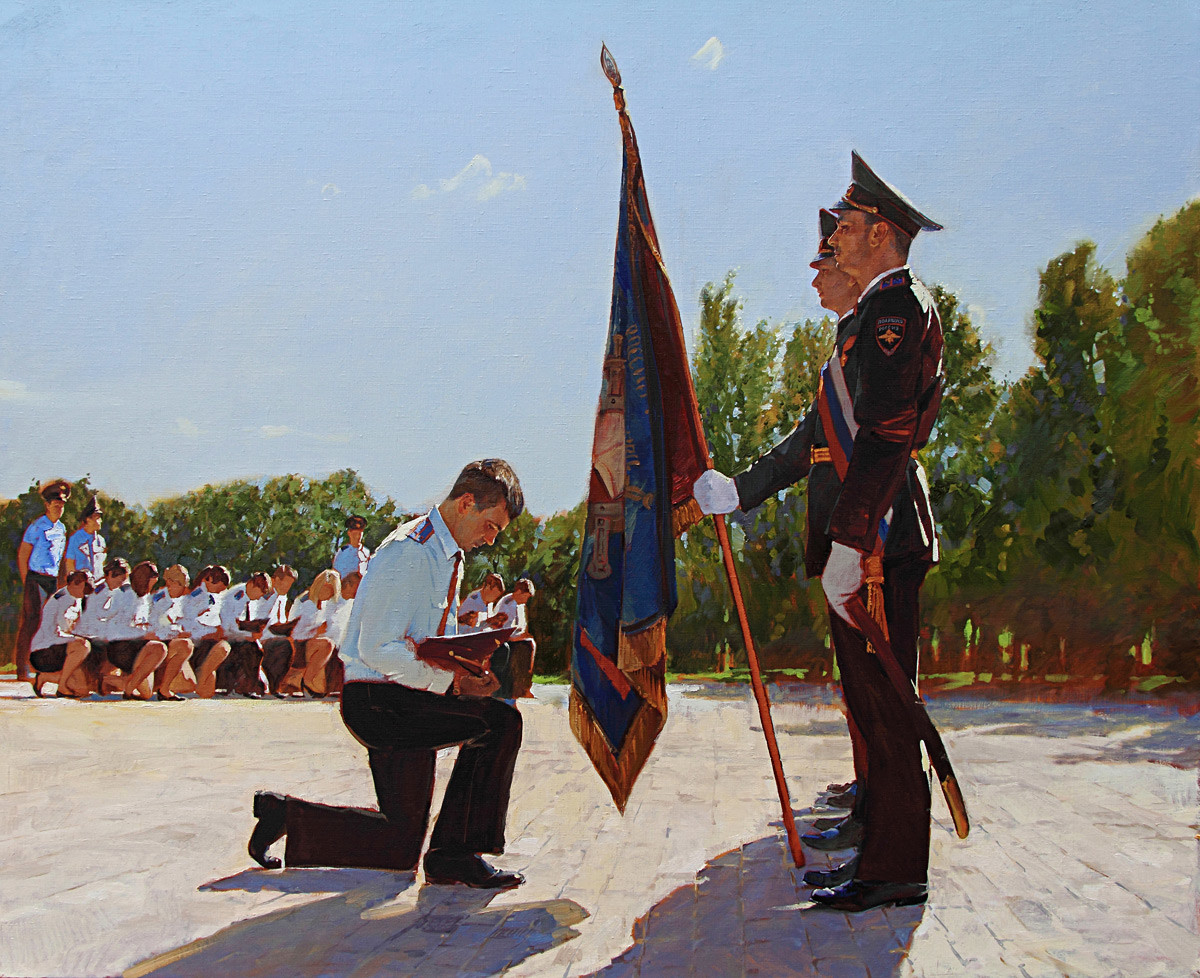
Anton Shumeiko, "Farewell to the banner," 2012 (ceremony of retirement from the the military academy)
Courtesy of the Studio artists of the Ministry of Internal Affairs of Russia named V.V. Vereshchagin“We document the epoch,” Leonov told Russia Beyond. “Sometimes people even cry at our exhibitions: bringing flowers to generals’ portraits, or arguing if they were nice people.”
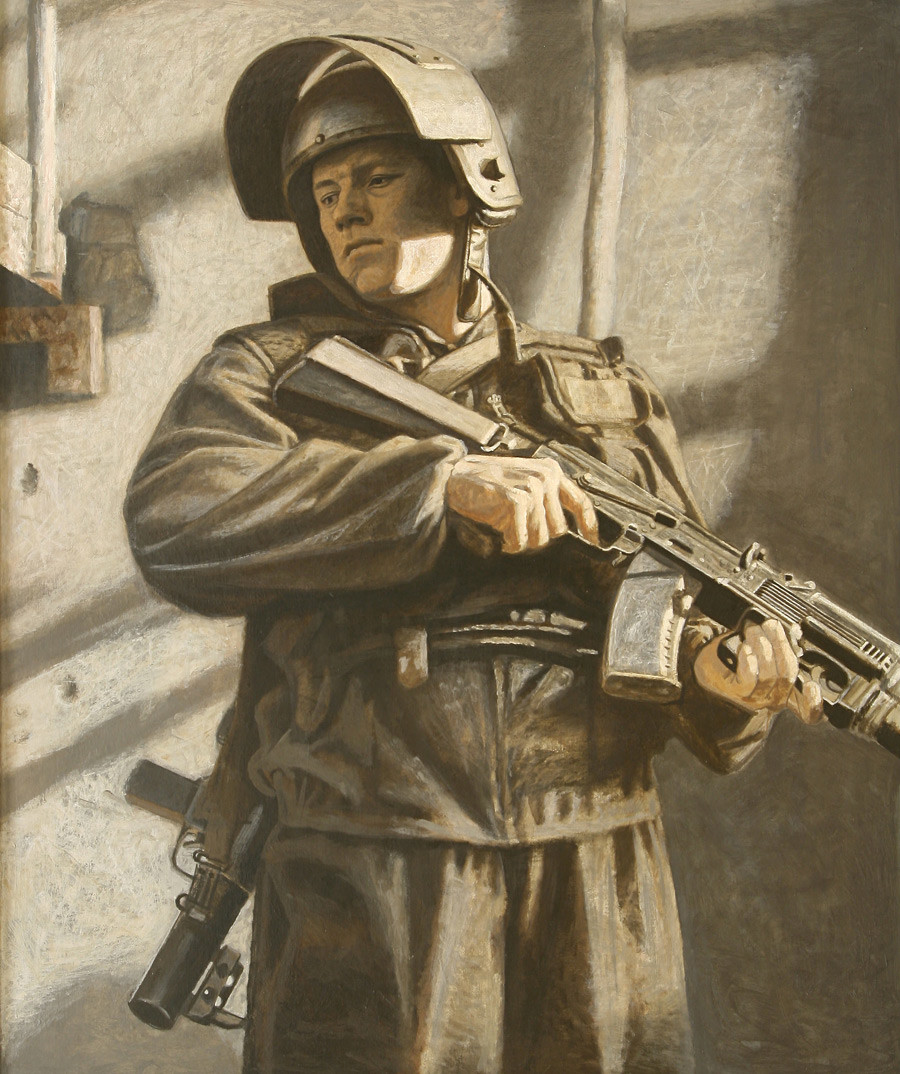
Alexander Teslik, "Ambush," 2005
Courtesy of the Studio artists of the Ministry of Internal Affairs of Russia named V.V. VereshchaginThese artists often do tours of duty in the field, including in conflict zones where Internal Troops of Russia are deployed: Nagorno-Karabakh (1990); the Chechen Republic (1999, 2000, 2006, 2008); Northern Ossetia (1993, 1994, 1995, and 2004); and Budenovsk in 1995. The painted works reflect the heroism and tragedy of battle
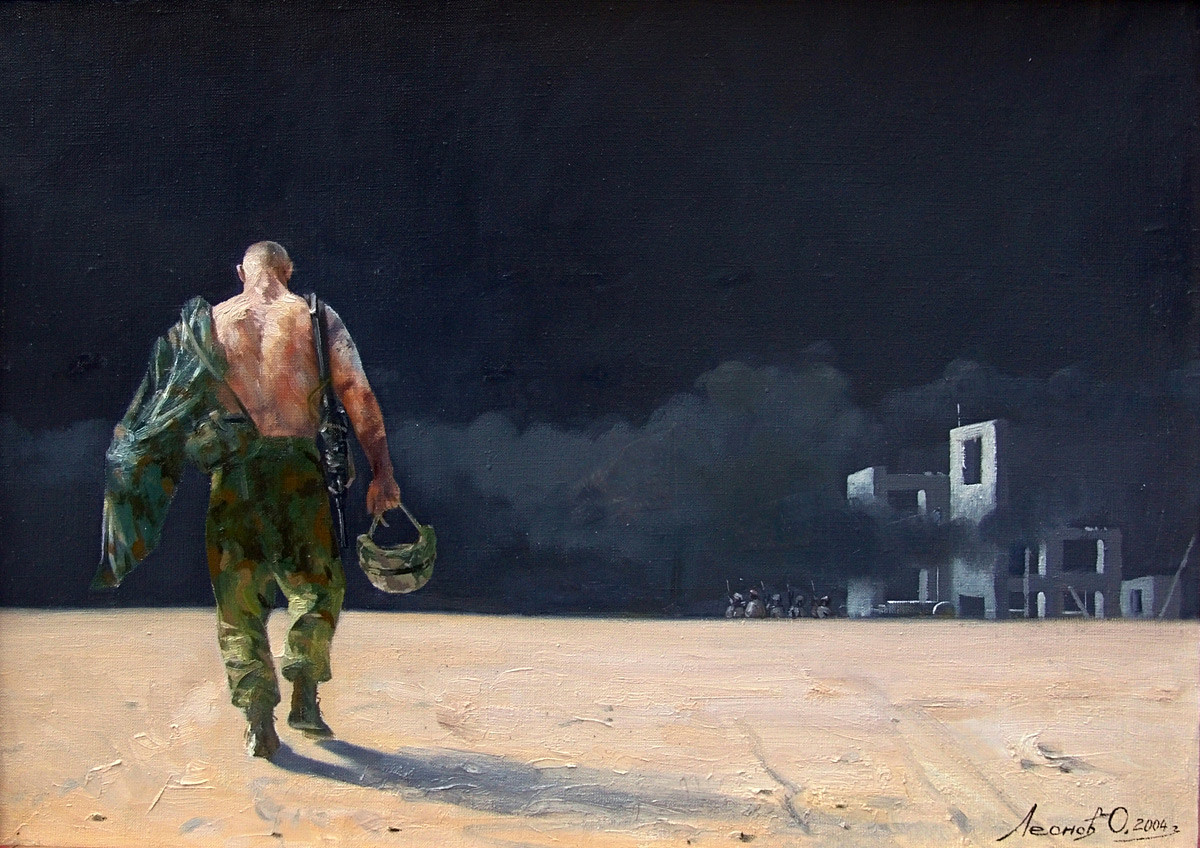
Oleg Leonov, "Between battles," 2004
Courtesy of the Studio artists of the Ministry of Internal Affairs of Russia named V.V. Vereshchagin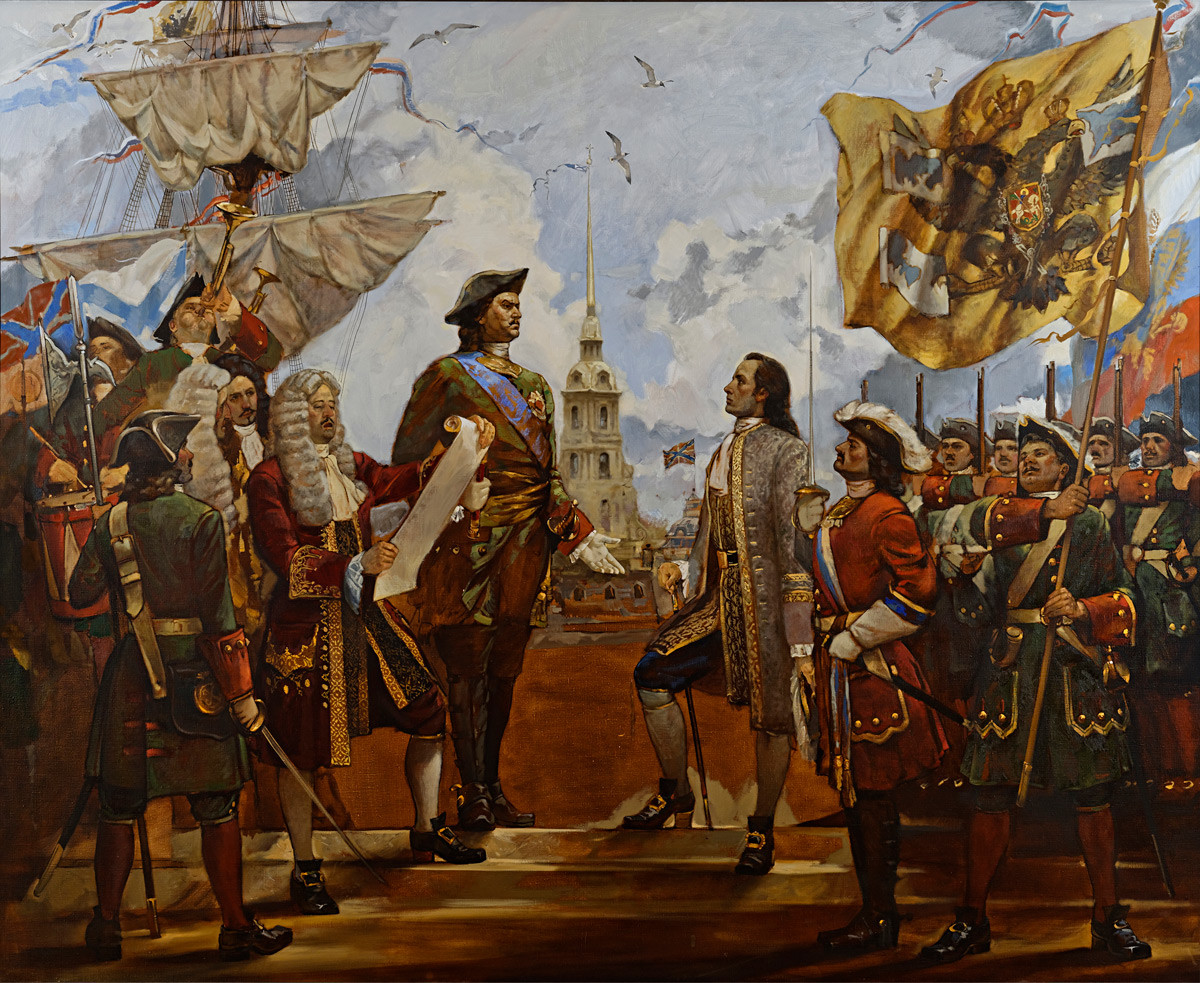
Anton Shumeiko, "Decree establishing the police. Proclamation of Peter the Great's decree to appoint Antonio de Vieira as general chief of St. Petersburg Police"
Courtesy of the Studio artists of the Ministry of Internal Affairs of Russia named V.V. VereshchaginNow, the
Read more: May the ‘Force’ be with you: How Russia’s police changed over time (PHOTOS)
If using any of Russia Beyond's content, partly or in full, always provide an active hyperlink to the original material.
Subscribe
to our newsletter!
Get the week's best stories straight to your inbox